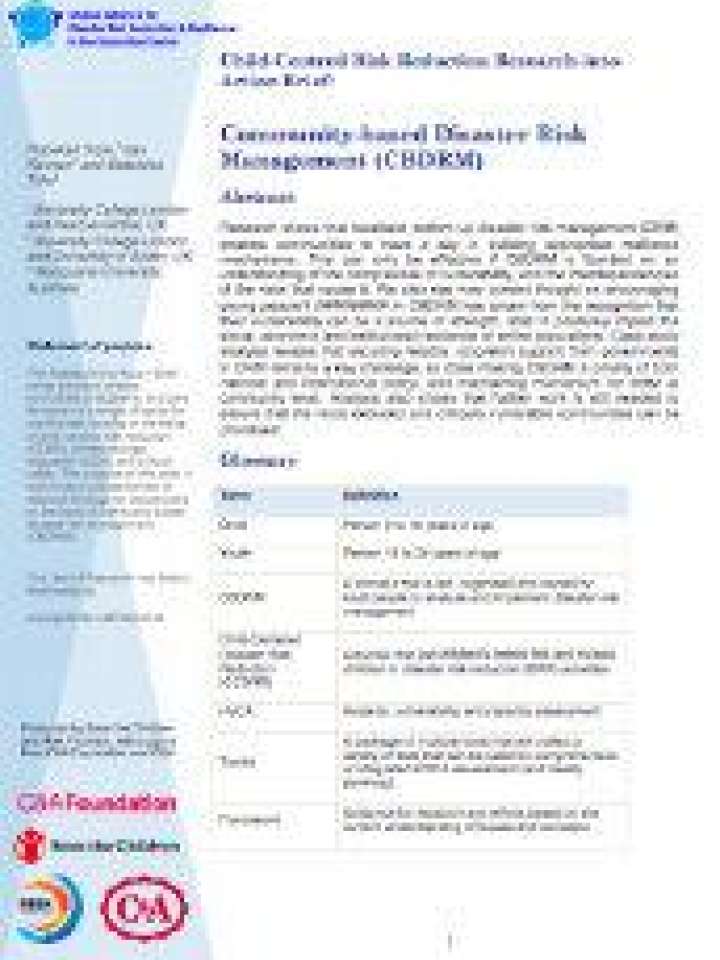Research-into-Action brief: Community-based disaster risk management (CBDRM)
This brief highlights how localised, bottom-up disaster risk management (DRM) enables communities to have a say in building appropriate resilience mechanisms. This can only be effective if community-based disaster risk management (CBDRM) is founded on an understanding of the complexities of vulnerability, and the interdependencies of the risks that cause it. It also shows how current thought on encouraging young people’s participation in CBDRM has arisen from the recognition that their vulnerability can be a source of strength, able to positively impact the social, economic and institutional resilience of entire populations.
Case-study analysis reveals that securing reliable, long-term support from governments in DRM remains a key challenge, as does making CBDRM a priority of both national and international policy, and maintaining momentum for DRM at community level. Analysis also shows that further work is still needed to ensure that the most excluded and critically vulnerable communities can be prioritised.
The Research-into-Action Brief series provides concise summaries of academic and grey literature on a range of topics for practitioners working in the fields of child-centred risk reduction (CCRR), climate change adaptation (CCA), and school safety.
Explore further
